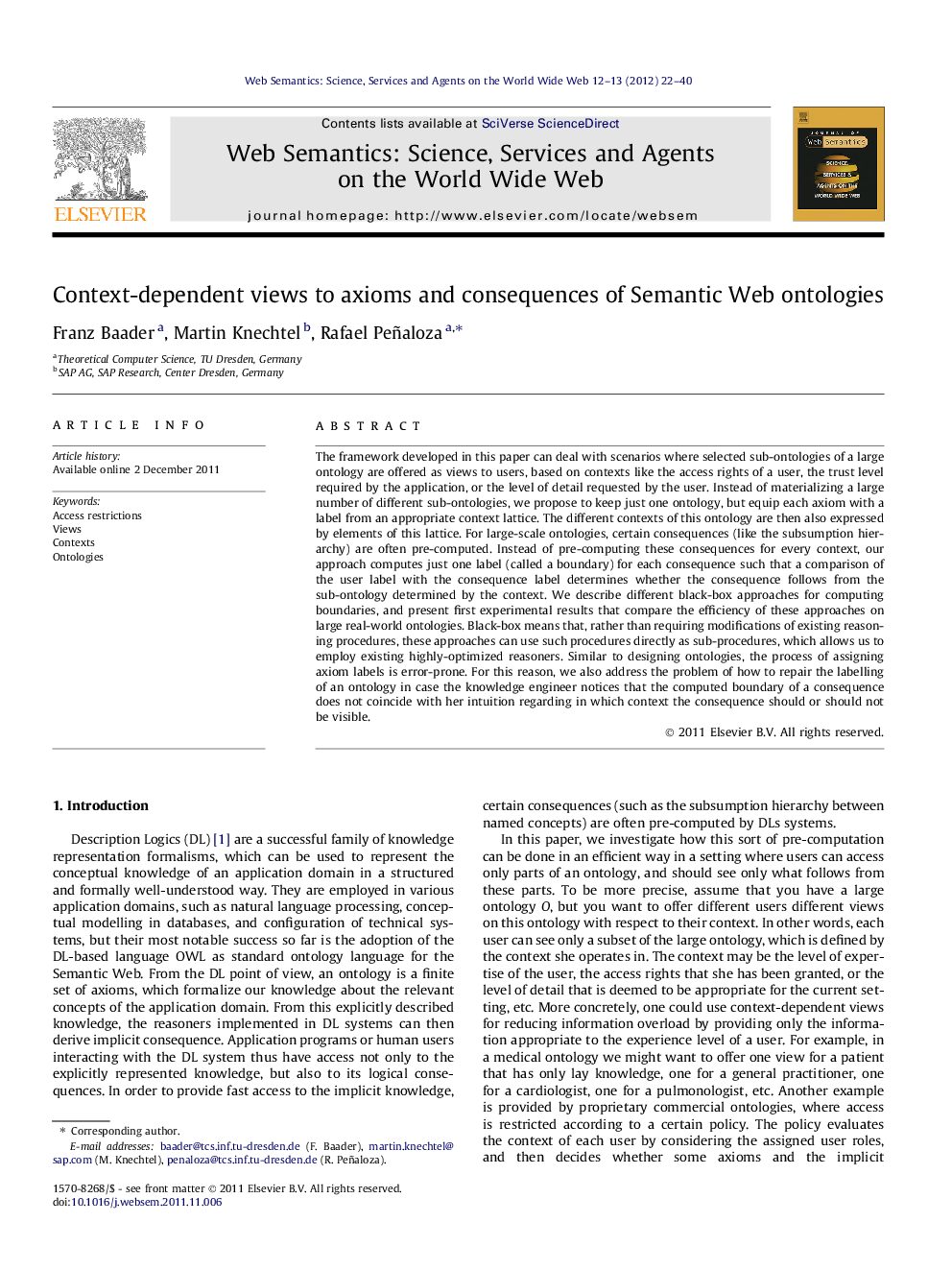| Article ID | Journal | Published Year | Pages | File Type |
|---|---|---|---|---|
| 6950592 | Web Semantics: Science, Services and Agents on the World Wide Web | 2012 | 19 Pages |
Abstract
The framework developed in this paper can deal with scenarios where selected sub-ontologies of a large ontology are offered as views to users, based on contexts like the access rights of a user, the trust level required by the application, or the level of detail requested by the user. Instead of materializing a large number of different sub-ontologies, we propose to keep just one ontology, but equip each axiom with a label from an appropriate context lattice. The different contexts of this ontology are then also expressed by elements of this lattice. For large-scale ontologies, certain consequences (like the subsumption hierarchy) are often pre-computed. Instead of pre-computing these consequences for every context, our approach computes just one label (called a boundary) for each consequence such that a comparison of the user label with the consequence label determines whether the consequence follows from the sub-ontology determined by the context. We describe different black-box approaches for computing boundaries, and present first experimental results that compare the efficiency of these approaches on large real-world ontologies. Black-box means that, rather than requiring modifications of existing reasoning procedures, these approaches can use such procedures directly as sub-procedures, which allows us to employ existing highly-optimized reasoners. Similar to designing ontologies, the process of assigning axiom labels is error-prone. For this reason, we also address the problem of how to repair the labelling of an ontology in case the knowledge engineer notices that the computed boundary of a consequence does not coincide with her intuition regarding in which context the consequence should or should not be visible.
Keywords
Related Topics
Physical Sciences and Engineering
Computer Science
Information Systems
Authors
Franz Baader, Martin Knechtel, Rafael Peñaloza,
